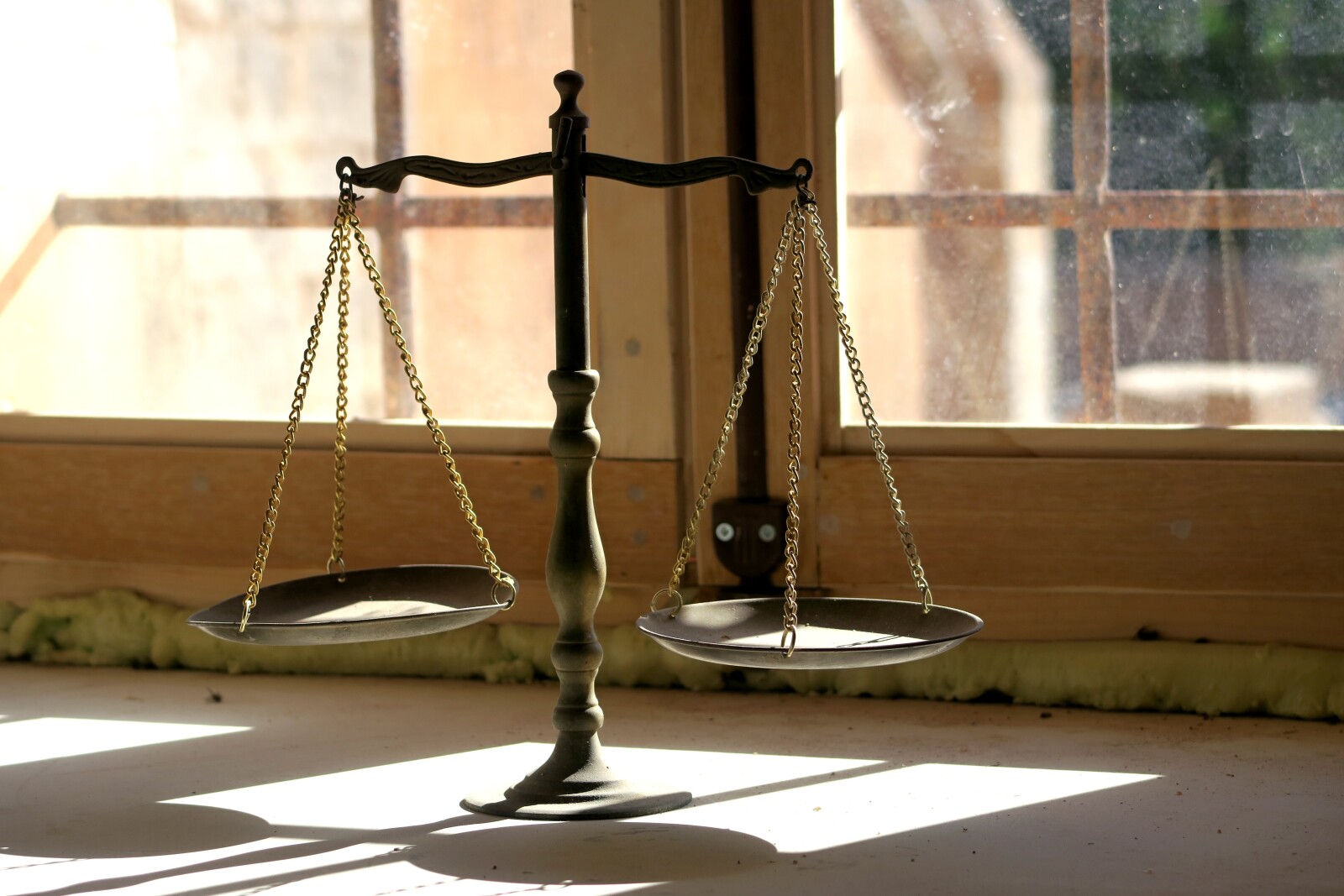Tragic Loss: Seeking Justice for Wrongful Death
This article explores the multifaceted nature of wrongful death cases, shedding light on its legal framework, common causes, and its profound impact on affected families. It further delves into the economic and non-economic damages claimable, the intricacies of settlements, and the crucial role of legal representation. Drawing lessons from past cases, it aims to equip readers with a comprehensive understanding of navigating this challenging path towards justice after experiencing a tragic loss.

Key Takeaways
- Wrongful death occurs when someone dies as a result of another person's negligence.
- Common causes of wrongful death include car accidents, medical errors, defective products, workplace accidents, and criminal acts.
- In wrongful death cases, compensation may be sought for economic damages, funeral expenses, loss of companionship, and emotional distress.
- Statutes of limitations for wrongful death claims vary by jurisdiction, and it is important to consult with an attorney to understand the specific time constraints.
Understanding Wrongful Death: An Overview
Understanding Wrongful Death: An Overview starts with discussing the definition and recognition of wrongful death, including the process of filing a lawsuit and seeking compensation. Wrongful death pertains to fatalities caused by another person's negligence or intentional act, recognized in many jurisdictions. The surviving family members are afforded the right to file a lawsuit, seeking compensation for financial and emotional losses. The importance of evidence in wrongful death cases cannot be overstated. The burden of proof in wrongful death lawsuits rests on the plaintiff, requiring them to substantiate their claim with credible evidence. This might encompass medical reports, eyewitness testimonies, and expert opinions, which collectively help establish the defendant's liability and the consequent damages. Therefore, thoughtful collection and presentation of evidence are fundamental for a successful claim.
The Legal Framework of Wrongful Death
The legal framework of wrongful death involves a complex process of litigation and settlement, and it requires an in-depth understanding of statutes of limitations, damage calculations, and the role of evidence in proving negligence. Understanding legal requirements is crucial as they provide the foundation for the case; this includes identifying the negligent party, establishing a duty of care, and demonstrating that the breach of duty directly resulted in the tragic loss. Seeking compensation is a significant aspect, structured around economic and non-economic damages, determined by the extent of loss and pain suffered by the family. Critical to note, each jurisdiction has a specific timeframe within which a wrongful death lawsuit must be filed, underlining the imperative for timely legal action.
Common Scenarios Leading to Wrongful Death
Medical malpractice and automobile accidents, two of the most prevalent scenarios, often lead to wrongful death cases, but workplace negligence and defective products can also result in such tragic circumstances. Medical negligence, resulting from a healthcare professional's failure to provide the standard of care, can lead to fatal consequences. Similarly, automobile accidents, often due to reckless driving or faulty vehicle parts, can cause untimely deaths. Workplace safety is another crucial concern. Employers' disregard for safety protocols can lead to accidents with fatal outcomes. Furthermore, defective products, be it everyday consumer goods or industrial machinery, pose significant risks. Careful scrutiny of these scenarios will help identify negligent parties, providing justice for the victims and their families.
The Impact of Wrongful Death on Families
While a wrongful death lawsuit can provide financial compensation, it is crucial to acknowledge that no amount of money can truly compensate for the emotional distress and upheaval that families endure when losing a loved one due to another's negligence. The grieving process can be prolonged and devastating, often halting normal life for an extended period. This mental toll significantly contributes to the long-term impact on families, which includes but is not limited to, changes in family dynamics, financial instability, and potential psychological disorders such as depression, PTSD, and anxiety. In this context, it is important to recognize that a wrongful death extends beyond immediate loss and has far-reaching effects that persist even after the lawsuit concludes.
Economic and Non-Economic Damages in Wrongful Death Cases
In wrongful death cases, both substantial economic damages, such as loss of income and medical expenses, and non-economic damages, including emotional distress and loss of companionship, are sought by the grieving family members to compensate for their profound loss. Calculating compensation involves a meticulous examination of various factors, including the deceased's earning capacity, age, health, and the financial dependency of the survivors. The emotional trauma and loss, though less tangible, equally bear weight in the compensation calculation. These damages aim to quantify the pain, suffering and loss of enjoyment of life experienced by the survivors. With no definitive calculation method, each case is unique, demanding a highly analytical and unbiased approach to ensure equitable compensation. The ultimate goal is to provide some form of financial relief amidst the irreplaceable loss.
The Role of Statutes of Limitations in Wrongful Death Claims
The role of statutes of limitations in wrongful death claims is a critical aspect to consider, as it sets a specific time frame within which the grieving family must file a lawsuit, and failure to do so can result in the claim being dismissed. Understanding the time constraints: statutes of limitations in wrongful death claims is vital as these laws vary by jurisdiction. Typically, these time limits range from one to three years from the date of the death. The Importance of timely legal action: statutes of limitations in wrongful death cases cannot be overstated. Consulting with a knowledgeable attorney to understand these time constraints can help ensure that the claim is filed within the required time frame, preserving the family's opportunity to seek justice for their loved one's wrongful death.
Navigating the Legal Process of a Wrongful Death Lawsuit
Given that the legal process of a wrongful death lawsuit can be both complex and emotionally taxing, it is often advisable for surviving family members to secure experienced legal representation to guide them through each stage of this challenging journey. Navigating legal procedures, such as gathering pertinent evidence, filing motions, and representing the family's best interests during trial or settlement negotiations, requires specific expertise. The ultimate goal is seeking compensation for both financial and emotional losses, which can offer some form of relief amid the tragic circumstances. This process, while arduous, is a necessary part of pursuing justice for the deceased. An analytical, unbiased approach to managing wrongful death lawsuits can help illuminate the path towards resolution and reparation.
The Intricacies of Wrongful Death Settlements
Understanding the intricacies of wrongful death settlements, including the delicate balance between financial compensation and emotional justice, is crucial for surviving family members seeking reparation for their tragic loss. Wrongful death compensation aims to provide monetary relief for financial and non-economic damages suffered due to the negligent actions of others. It's noted that negotiating settlements is often a complex process, involving multiple factors such as the extent of negligence, the economic impact on the family, and the emotional toll of the loss. Each case is unique, requiring detailed evaluation and analysis. The role of experienced legal counsel is pivotal in providing unbiased guidance and advocacy throughout the process, ensuring that the bereaved families secure the justice they are entitled to.
The Role of Legal Representation in Wrongful Death Cases
In wrongful death cases, adept legal representation is not only crucial for navigating the maze of legal complexities, but also for ensuring that the bereaved families obtain the compensation they rightfully deserve, thereby playing a decisive role in the pursuit of justice. Key aspects of this process are the importance of evidence gathering in wrongful death cases and the role of expert witnesses in proving negligence. Meticulous collection of evidence lays the groundwork for a strong case, while expert witnesses provide critical insights that can substantiate claims of negligence. Their technical knowledge can decipher intricate matters, attributing blame accurately. Thus, an attorney's expertise in these areas can significantly influence the outcome, underscoring the importance of legal representation in wrongful death cases.
Lessons From Past Wrongful Death Cases
Reviewing past wrongful death cases provides invaluable insights for future litigation, and it aids in comprehending the complexities of such legal matters. The case studies reveal patterns of negligence and misconduct, offering lessons learned to enhance future legal strategies. For instance, medical malpractice cases often hinge on expert testimony, highlighting the importance of credible, experienced witnesses. Cases involving product liability underscore the significance of thorough investigation and evidence gathering. Workplace incident cases stress the need for comprehensive understanding of industry regulations and safety standards. While every case is unique, these insights form a knowledge base for future litigation, guiding attorneys and plaintiffs alike. They underscore the importance of meticulous preparation, aggressive advocacy, and insightful legal strategy in securing justice for wrongful death victims.
Moving Forward: Healing and Justice After Wrongful Death
While the emotional pain and suffering following a wrongful death may never fully subside, pursuing justice through legal action can provide a sense of closure and aid in the healing process for grieving families. The journey towards healing and closure is often complex, demanding both emotional resilience and legal expertise. Seeking accountability and justice not only serves to address the wrongs inflicted but also affirms the value of the life lost. A wrongful death lawsuit, while challenging, can be a vehicle for this pursuit. The legal process allows families to present their case in a structured environment, seeking compensation for the damages suffered. This process, while not erasing the pain, can catalyze the transition from grieving to healing, facilitating closure, and reaffirming the importance of accountability and justice.
Frequently Asked Questions
What Are the Typical Steps Involved in Filing a Wrongful Death Claim?
Filing a wrongful death claim typically involves several key steps. Initially, evidence collection takes precedence to establish negligence. This may include medical records, accident reports, or witness testimonies. Subsequently, an attorney is consulted to evaluate the claim's viability. If deemed valid, a lawsuit is filed within the statute limitations, which vary by jurisdiction. Negotiation with the defendants might follow, possibly leading to a settlement. If not, the case proceeds to trial.
How Is the Amount of Compensation Determined in a Wrongful Death Case?
In wrongful death cases, compensation is determined by several key factors, including the deceased's income, potential future earnings, age, and the financial dependency of survivors. The process of establishing financial losses entails a meticulous examination of these factors. Other non-economic factors like loss of companionship and emotional distress are also considered. The uniqueness of each case means compensation can vary significantly. Therefore, professional legal guidance is paramount in accurately determining potential compensation.
What Happens if the Person Responsible for the Wrongful Death Is Also Deceased?
If the person responsible for the wrongful death is also deceased, a claim can still be pursued against the deceased defendant's estate. This involves a complex legal process, often entailing the initiation of probate proceedings. Additionally, insurance policies held by the deceased offender may be a source of compensation, necessitating the navigation of the insurance claims process. Legal counsel is invaluable in these situations to ensure a proper and thorough pursuit of justice.
Can a Wrongful Death Claim Be Filed Against a Company or Organization, or Only Against Individuals?
A wrongful death claim can be filed against both individuals and entities such as companies or organizations. If the negligent act that caused the death occurred in the scope of employment or involved a defective product, the company can be held accountable. The legal ramifications for companies can include substantial financial penalties and reputational damage. Each case is unique and depends on the specific circumstances and jurisdictional laws.
Is It Possible to Appeal the Verdict in a Wrongful Death Lawsuit?
Yes, it is possible to appeal the verdict in a wrongful death lawsuit. This process typically involves Verdict Reversal Strategies, which are legal tactics aimed at demonstrating that the trial court made a significant error. Public Perception Impact can also play a role, as shifts in public opinion may potentially influence the outcome of an appeal. However, appeals are complex and require a deep understanding of the law; thus, legal representation is highly recommended.
Conclusion
In conclusion, wrongful death cases are multifaceted, involving intricate legal processes and emotional tolls. A comprehensive understanding of the legal framework, types of damages, and role of legal representation can empower affected families to seek justice. Learning from past cases can provide invaluable insights. Despite the daunting journey, achieving a sense of justice and closure is crucial in healing and moving forward after the tragic loss of a loved one.

This post has been generated by AI and was not reviewed by editors. This is Not legal advice. Please consult with an attorney.




